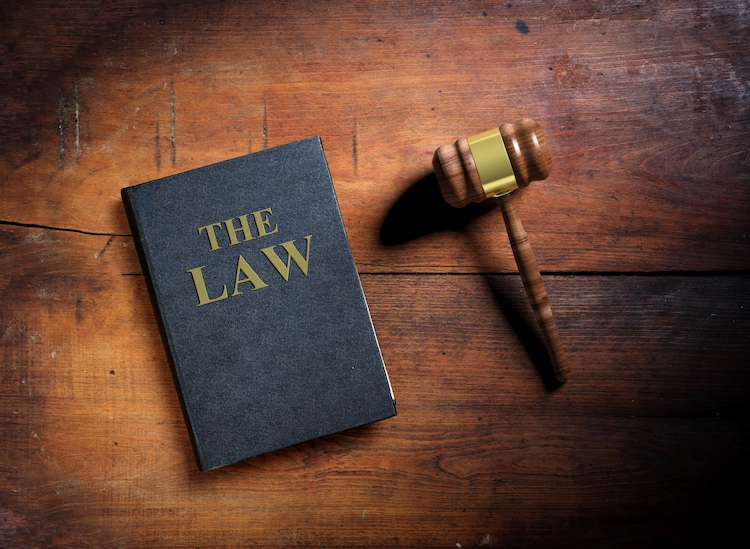Supreme Court to Consider Constitutionality of State Social Media Laws

Social media is poised to be a hot topic for the U.S. Supreme Court next term. The justices recently granted certiorari in two cases challenging state laws that restrict social media companies’ ability to moderate content on their platforms. The key issue before the Court is whether the Texas and Florida laws violate the First Amendment.
Facts of the Cases
The two cases before the Court, Moody v. NetChoice, LLC and NetChoice, LLC v. Paxton, involve laws enacted by Florida and Texas to regulate major social media platforms like Facebook, YouTube, and X (formerly known as Twitter). While the state laws are slightly different, both limit social media platforms’ ability to engage in content moderation by removing, editing, or arranging user-generated content.
By way of example, the Florida law provides that “[a] social media platform may not take any action to censor, deplatform, or shadow ban a journalistic enterprise based on the content of its publication or broadcast.” Meanwhile, the Texas law, H.B. 20, prohibits “censor[ing] a user, a user’s expression, or a user’s ability to receive the expression of another person” based on “(1) the viewpoint of the user or another person; (2) the viewpoint represented in the user’s expression or another person’s expression; or (3) a user’s geographic location in [Texas].”
Both laws also require platforms to provide individualized explanations for certain forms of content moderation and mandate that platforms provider general disclosures about their content-moderation practices.
Lower Court Decisions
Trade associations representing the platforms challenged both the Florida and Texas laws on First Amendment grounds. In the Florida case, the Eleventh Circuit Court of Appeals affirmed a preliminary injunction in part. The court held that S.B. 7072’s content-moderation and individualized-explanation provisions likely violate the First Amendment. Among other reasons, the court found that “S.B. 7072’s content-moderation restrictions do not further any substantial governmental interest.” The Eleventh Circuit further held that NetChoice was unlikely to succeed in its pre-enforcement challenge to the general-disclosure provisions or its claim that S.B. 7072 was motivated by viewpoint discrimination.
In the Texas litigation, a divided panel of the Fifth Circuit Court of Appeals reversed a preliminary injunction. In contrast to the Eleventh Circuit, it held that NetChoice was unlikely to succeed in any of its challenges to H.B. 20. It held that platforms’ content-moderation activities are “not speech,” but rather “censorship” that States may freely regulate without implicating the First Amendment. The Fifth Circuit further held that, even if content moderation warrants First Amendment protection, H.B. 20’s content-moderation restrictions “satisf[y] intermediate scrutiny.”
Issues Before the Supreme Court
The Supreme Court granted certiorari on September 26, 2023. The justices have agreed to consider the following questions:
(1) Whether the laws’ content-moderation restrictions comply with the First Amendment; and (2) whether the laws’ individualized-explanation requirements comply with the First Amendment.
Oral arguments have not yet been scheduled. Please check back for updates.
Previous Articles
Supreme Court Clarifies Applicability of First Step Act to Vacated Sentences
by DONALD SCARINCI on September 4, 2025
In Hewitt v. United States, 606 U.S. ____ (2025), a divided U.S. Supreme Court held that the First ...
SCOTUS Rules E-Cigarette Retailers Can Challenge FDA Order in Fifth Circuit
by DONALD SCARINCI on
In FDA v. R. J. Reynolds Vapor Co., 606 U.S. ____ (2025), the U.S. Supreme Court held that e-cigare...
Supreme Court Expands Judicial Review of Agency Actions
by DONALD SCARINCI on
In McLaughlin Chiropractic Associates, Inc. v. McKesson Corp., 606 U.S. ____ (2025), the U.S. Supre...
The Amendments
-
Amendment1
- Establishment ClauseFree Exercise Clause
- Freedom of Speech
- Freedoms of Press
- Freedom of Assembly, and Petitition
-
Amendment2
- The Right to Bear Arms
-
Amendment4
- Unreasonable Searches and Seizures
-
Amendment5
- Due Process
- Eminent Domain
- Rights of Criminal Defendants
Preamble to the Bill of Rights
Congress of the United States begun and held at the City of New-York, on Wednesday the fourth of March, one thousand seven hundred and eighty nine.
THE Conventions of a number of the States, having at the time of their adopting the Constitution, expressed a desire, in order to prevent misconstruction or abuse of its powers, that further declaratory and restrictive clauses should be added: And as extending the ground of public confidence in the Government, will best ensure the beneficent ends of its institution.





